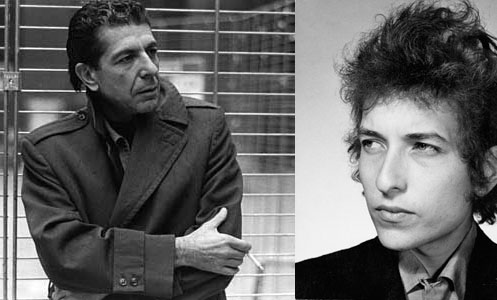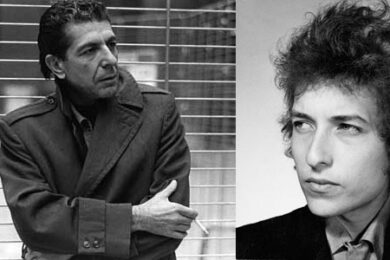Last Saturday morning, lying as usual in my pit listening to Radio 4, my somnambulant ears twitched to an unusual assailant, neither the thunder of the Heathrow flight path nor the thwacking of Battersea Heliport. Bob Dylan had broken into my transistor to interrupt my reverie; that perfidious harmonica, that wheedling voice, those hamfisted bashes at the acoustic guitar. I groaned into the pillow at the prospect of yet another Radio 4 show (these days the station resembles Uncut magazine on the airwaves, but without the visual panache) on Dylan, and tried to let a sore head block it out. But rather than the usual hagiography, this was supposedly a rebuttal explaining why the great sacred cowboy hat of the 20th century canon isn’t actually all that much cop.
The problem was that presenter Lenny Henry went running to the usual suspect: Paul Morley yet again leading ill-informed Times readers onto the rocks of sonic iniquity like a wrecker hijacking a musical shipping forecast. Unfortunately, Henry made the common mistake among Dylan dissenters, and only found fault with that anaemic, caterwauling voice, which Morley instantly picked up on. This is a red herring, friends. Given the constraints of space and time, I shall leave it to the eminent Germaine Greer to give the academic explanation of why it is the “doggerel” of his lyricism that is Dylan’s greatest flaw. Or, as Eric Hobswam more kindly said, Dylan is “a potential major poet too idle or self-absorbed to keep the muse’s attention for than two or three lines at a time”.
It’s always amazed me that Dylan’s streams of consciousness have so captured the imagination of the post-sixties generations. It’s been too easy, for a start: contemporary lauding in all the right places and a ‘controversial’ change of direction does for easily mythologizing make, discipleship and calls of "Judas" nicely fitting into the trope of rock & roll as the post war, secular messianic belief system expounded by the newly frocked media priesthood.
For to me, Dylan has always paled into insignificance compared to his contemporary Leonard Cohen. A poet before he became a reluctant musician, Cohen possessed an uncomfortable and humble voice that found itself over simple acoustic guitar. This simplicity is what liberated his brilliant words. Then, in 1988’s I’m Your Man and 1992’s The Future he painted a prescient of a search for redemption in a valueless, corrupt society via a change in style that, oddly, didn’t offend his fanbase. Cohen’s voice was deeper and even more caustic after thousands of cigarettes, sitting over an almost incongruous backing of sax, ponderous synths and fruity backing singers. Unlike Dylan (a musician for conservative bores easily upset by change), Cohen made the move from acoustic to electric – indeed, digital – seamlessly, his universal appeal extant through the honesty of the work, his understanding of love, life, spirituality, history, his self-deprecation and all-too overlooked dry wit.
This has been none more evident than on the few dates Cohen has played of his current tour which, let us not forget, has happened not through a deal with a coffee shop, but because the shrivelled old cove got stiffed by his manager while he was up learning with the Buddhists of Mount Baldy.
I asked my friend how Leonard Cohen had been at Glastonbury. “I cried all the way through,” she said. “There’s something about that voice” Over on DiS someone wrote that Cohen alone would have been worth the steep ticket price. Another friend said that work had precluded her from catching but one song of Cohen’s set, but that was enough to open her ears to his brilliance. I saw Dylan at Glastonbury a few years ago, a tedious set where he wilfully and tunelessly trudged through the more obscure recesses of his back catalogue, knowing he could get away with it because of the reverence of the crowd at seeing a trademarked icon. The freewheelin’ Bob Dylan, hark as the registers ring.
Does Dylan get covered by anyone from Bon Jovi to Nick Cave to Jarvis Cocker to Artery to the Jesus And Mary Chain to John Cale and Coil? No, he’s merely the voice ‘channelled’ by a thousand randy open mic night losers on the prowl for hippy chicks.
There’s a famous conversation piece where Cohen and Dylan discuss how long it takes them to write their lyrics; Cohen says it takes him month, Dylan, “about ten minutes”. As any poet, Cohen crafts his words, where Dylan throws them out, a Bob-a-job lackey to the rock’n’roll machine. Never mind that cowboy pastiche and “doggerel” via harmonica dentures, for it is Cohen, with a doff of his grey fedora and a thank you delivered in gravelly humility, who’s your man.



